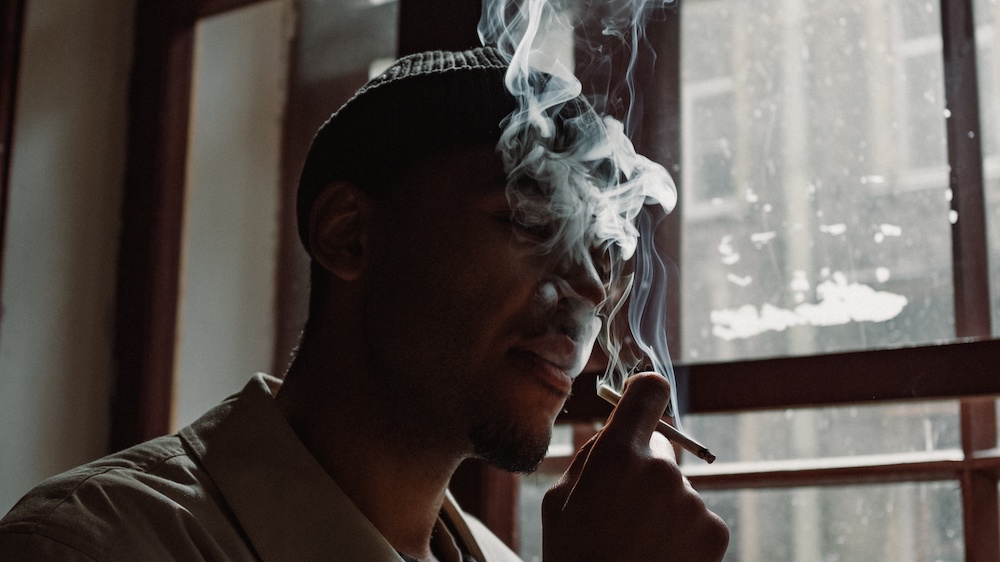If you’re interested in sharing your opinion on any cultural, political or personal topic, create an account here and check out our how-to post to learn more.
Opinions are the writer’s own and not those of Blavity's.
____
The House will soon vote on the trillion-dollar spending plan that, according to the White House, will “deliver for the American middle class” and boost the economy. Contrary to what President Biden and the Democrats say, the bill will cost more than “zero dollars” and they need working Americans to pay for it.
Don’t let the Democrat’s “tax the rich” mantra fool you. The infrastructure bill won’t be funded solely by corporations and high earners, nor will it rely on unused COVID relief money. Included in the 2,700-page bill is a provision that doubles the current rate of excise taxes on cigarettes, nicotine and vaping products — a move that will directly affect working-class Americans, especially minorities.
This provision is unwarranted. It will harm disadvantaged populations the most and make it harder for smokers who are trying to quit.
President Biden pledged to individuals making less than $400,000 per year that he would not raise their taxes. He is, and the tax hike will largely befall on the poorest Americans. According to a study conducted by researchers at the University of Colorado, Americans in the lowest socioeconomic groups have the highest smoking rates. And as noted by the Tax Foundation, smoking has an inverse relationship with income, such that consumption increases as income decreases. This means that Democrats are, in part, relying upon money collected from low-income smokers to fund their proposal.
Unless legislators amend this provision in the future, it will have a long-term effect on income inequality, since Americans living in poverty tend to smoke more and longer than those with higher incomes.
President Biden is breaking more than one campaign promise. He touted himself as an advocate for the underrepresented and underserved, especially as it relates to economic equality. Yet, this tax has a disproportionate effect on minorities and marginalized groups: the CDC found that smoking is prevalent among a wide array of populations, including Native Americans, adults with disabilities, military servicemen and the LGBT community. Immigrants, especially Asians, are uniquely impacted, since smoking is a cultural and social norm in many countries. These groups are being penalized by the bill, despite the president’s earlier vows to protect them.
Since Democrats need to raise trillions of dollars for their proposal, they’re targeting both smokers and smokers who want to quit. The bill makes no distinction between tobacco products and differing levels of harm: it doubles the tax on cigarettes while simultaneously introducing a high tax on vaping products, which are popular for smoking cessation. Some of the new taxes amount to an unprecedented 2,000 to 3,000% hike.
For the sake of smokers trying to quit, there needs to be some recognition of harm. Politicians and bureaucrats claim that they care about smoking as a public health issue while taking away safer alternatives. The Democrat’s tax on vapor products, coupled with the FDA’s recent ban on millions of e-liquids, furthers political goals but does little to promote public health.
The tax on both smoking and smoking cessation is a regulatory nightmare for millions of Americans. It also comes at the worst possible time. The pandemic has worsened the mental health, financial stability and job security particularly for those making less than $100,000 per year. There has also been an uptick in the use of tobacco, which decreases lung health and exacerbates the severity of COVID-19.
The CDC considers smokers immunocompromised and puts them in the same risk category as people who have HIV or are receiving cancer treatments. Despite this, lawmakers are making both the bad habit and the ability to quit much harder.
So it turns out “tax the rich” was only a starting point. The vulnerable, underrepresented and poor will be paying for the infrastructure bill — while being told it’s for their benefit.
____
Rachel Chiu is a Tobacco Harm Reduction Fellow for Young Voices. Follow her on Twitter: @rachelhchiu

